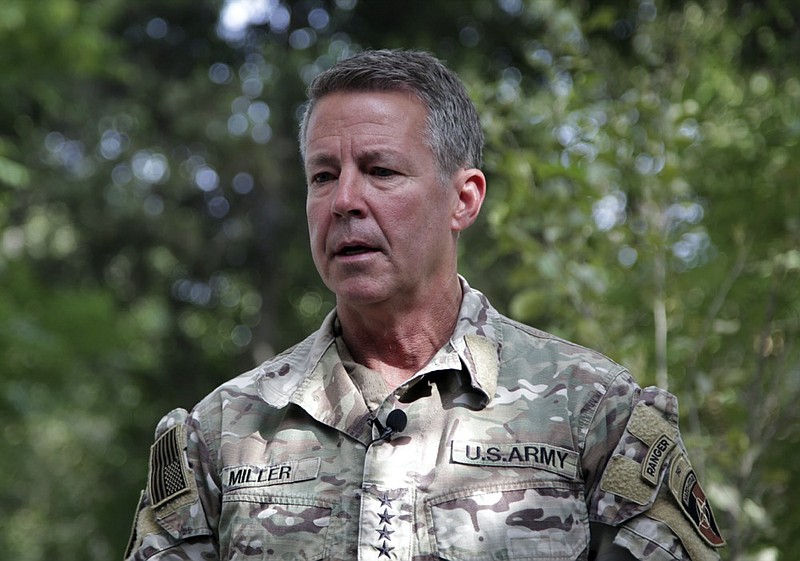The security situation in Afghanistan is deteriorating, prompting many to second-guess President Joe Biden's decision to withdraw U.S. troops by Sept. 11. This is an understandable emotional reaction, but it isn't supported by facts. More time won't change the outcome. If U.S. troops left Afghanistan five years ago or five years from now, it was always going to end this way.
Since the final withdrawal began, the Taliban has advanced rapidly, already taking control of roughly one-third of the country. While some Afghan military units are losing in battle, many of the units the U.S. military trained and supplied for years are surrendering without a fight, leaving valuable military hardware paid for by U.S. taxpayers in Taliban hands. U.S. intelligence analysts are now saying the Afghan government could collapse within six months of the withdrawal.
To use this as a reason for U.S. troops to stay would be like claiming the fall of Saigon as evidence that America should not have ended its campaign in Vietnam. U.S. troops could have maintained a violent status quo there too, but they couldn't have changed the outcome - not with two more years or 20.
The inevitability of the outcome does not make it any less tragic, but the tragedy does not make the decision to withdraw wrong. Instead, the rapid decline is proof positive that we were not on track to establish a stable government in the country, nor were our efforts to train the Afghan military putting it on a path to self-sufficiency. As Biden has said, this was not a winnable war.
Twenty years has proved that. Staying now could only be justified if we had decided that permanently propping up a weak and corrupt Afghan government is in America's national interest. It is not.
The costs of two decades of war in Afghanistan have been substantial and widely reported. The war-fighting costs alone come in at over $800 billion, but that is a fraction of the total costs borne by the American people, and the opportunity cost for what we might have invested in at home instead.
If you add in all U.S. government spending on the war, including care for veterans who served there and interest paid on money we've borrowed to support it, it has cost the American people over $2 trillion. Imagine if that amount had instead been invested in infrastructure, education or health care here at home. Certainly, the American people would have more to show for it.
We also can't ignore the direct harm caused by this tremendous investment in Afghanistan. Over two decades, the United States flooded Afghanistan with money and failed to account for its use or abuse. The U.S. government repeatedly turned a blind eye to growing corruption.
The toll in lives lost is even harder to face. It includes 2,442 U.S. troops, 1,144 coalition troops and an estimated 3,800 U.S. contractors, in addition to nearly 50,000 Afghan civilians, 72 journalists and 444 aid workers.
The Afghan people are facing an uncertain future, but whether it will be more violent isn't even clear.
Instead of asking whether our military should remain in Afghanistan, we should ask what we need to do to advance our limited interests there now. This includes using intelligence resources and working with partners to ensure that what emerges doesn't develop into a direct threat to the United States. We can continue to use diplomacy and development assistance as leverage to try to sway better outcomes.
We should also be taking stock of lessons learned. In the absence of success, the best way to honor those who lost their lives in this conflict is to not make the same mistakes again. No matter how many troops we send, how much firepower we use, or how long we stay, the United States alone cannot will a new and effective government into being in a foreign country. We should have learned this lesson already. Let's hope we don't have to again.
Elizabeth Shackelford is a senior fellow on U.S. foreign policy with the Chicago Council on Global Affairs. She was previously a U.S. diplomat.
The Chicago Tribune
